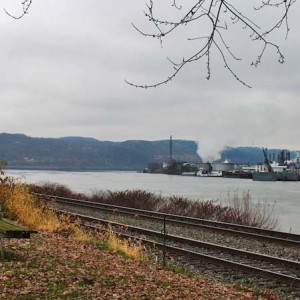Federal Water Tap, March 13: News from Congress and the Courts
Military Base Water Contamination
From the 1950s to the 1980s people living at Camp Lejeune Marine Base near Jacksonville, N.C. unknowingly drank tap water contaminated with benzene and other chemicals. Lawsuits have been filed. Now, the state’s U.S. senators are criticizing attempts by military officials to redact information in a federal report about the base’s water infrastructure, according to the Jacksonville Daily News.
Today, these concerns will be aired in Senate Judiciary Committee hearing. The committee will discuss national security and the public’s right to know information about government activities. A retired Marine sergeant who lived at Camp Lejeune is among those who will testify.
Flood Control Ruling
A federal appeals panel agreed with the U.S. Environmental Protection Agency’s decision to veto a flood control project in the Mississippi Delta, the Associated Press reports. Congress authorized the Yazoo project in 1941 but didn’t allocate the money to complete it. The EPA has successfully argued that the project does not met Clean Water Act requirements.
Asian Carp
To protect its fishing industry, Minnesota’s congressional delegation has introduced legislation that would help the state limit the spread of the invasive fish in the upper Mississippi River basin. The Minneapolis Star Tribune reports that the bill would require the northernmost shipping lock on the river to close once certain conditions are met. The bill would also give the state access to federal funds currently limited to the Great Lakes.
California Water
Members of California’s congressional delegation are discussing legislation that would overhaul water management in the state’s agricultural core, the Modesto Bee reports. The legislation would be less earth-shaking than a bill that passed the House last month. That bill would supersede state water law.
Oil Spill
Last week the Senate passed the RESTORE Act, a bill that ensures that most of the fines paid by BP for the oil spill in the Gulf of Mexico in 2010 will be allocated to the five states that border the gulf. The New Orleans Times-Picayune reports that the bill passed because $1.4 billion was added to the Land and Water Conservation Fund, which buys land for conservation.
Naval Power
In a Senate subcommittee hearing yesterday, the secretary of the Navy testified that a Naval policy that transitions energy supplies away from fossil fuels is a matter of national security. Raymond Mabus told the subcommittee that “we must use energy more efficiently and we must lead in the development of alternative energy; otherwise, we allow our military readiness to remain at risk.”
Today, the full Senate Committee on Energy and Natural Resources will hear testimony from an independent consultant on the Department of Energy’s loan guarantee program. The program made news late last year when one of the companies it backed, Solyndra, filed for bankruptcy.
Federal Water Tap is a weekly digest spotting trends in U.S. government water policy. To get more water news, follow Circle of Blue on Twitter and sign up for our newsletter.
Brett writes about agriculture, energy, infrastructure, and the politics and economics of water in the United States. He also writes the Federal Water Tap, Circle of Blue’s weekly digest of U.S. government water news. He is the winner of two Society of Environmental Journalists reporting awards, one of the top honors in American environmental journalism: first place for explanatory reporting for a series on septic system pollution in the United States(2016) and third place for beat reporting in a small market (2014). He received the Sierra Club’s Distinguished Service Award in 2018. Brett lives in Seattle, where he hikes the mountains and bakes pies. Contact Brett Walton




Leave a Reply
Want to join the discussion?Feel free to contribute!